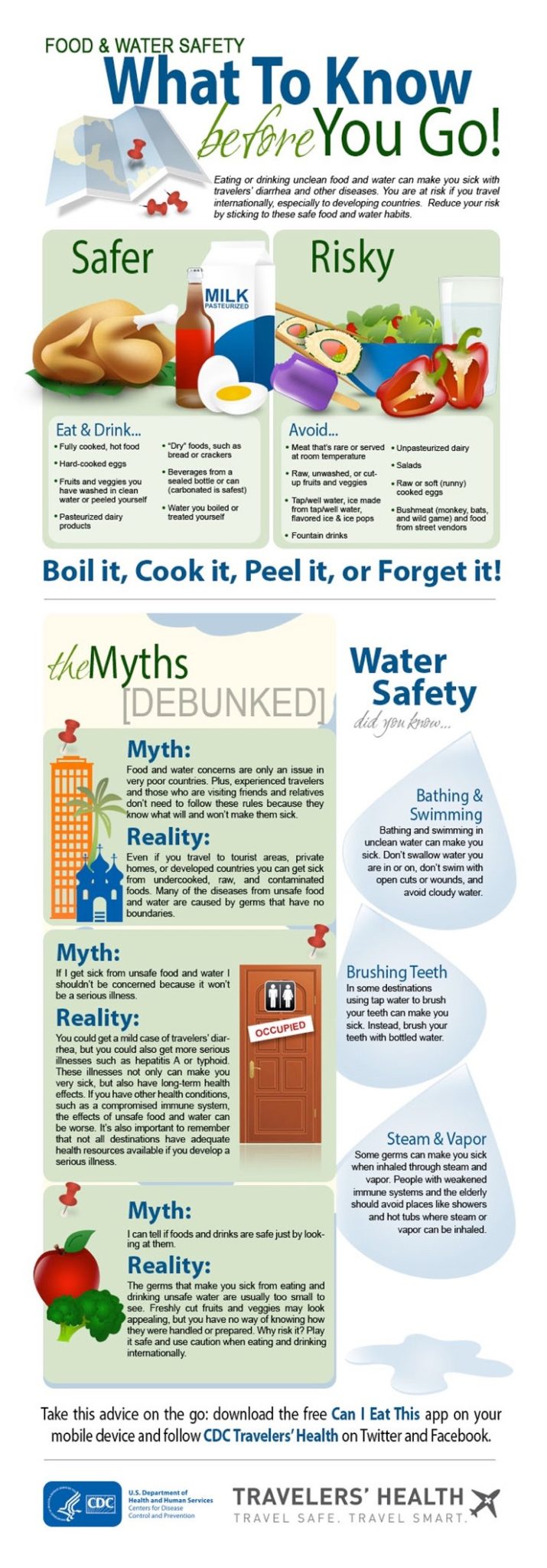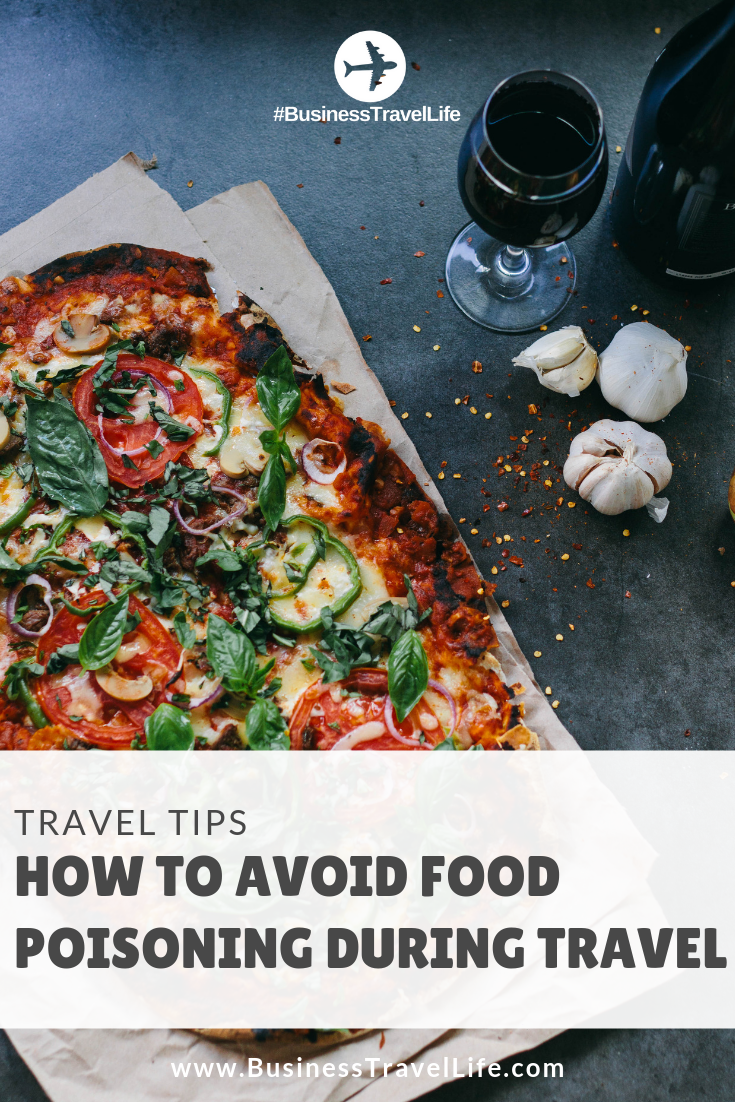Don’t let food poisoning ruin a business trip.
A few weeks ago while on the road, I experienced every travelers’ worst nightmare – food poisoning. Food poisoning is bad enough when you are in the comfort of your own home, but being stuck in a hotel room in a place that’s foreign to you is even worse. Nothing can ruin a business meeting, interview, or presentation quicker than a meal in a questionable restaurant beforehand. The CDC estimates that 1 in 6 Americans
The Center for Disease Control estimates that 1 in 6 Americans suffer from food poisoning annually, with most cases caused by food made in restaurants. This puts business travelers at a higher risk, since most meals are eaten in a restaurant .
What Causes Food Poisoning?
Food poisoning can be caused many factors that mostly relate to food handling. Some of the causes of food poisoning include improper storage, sanitation, and cooking temperatures. Unfortunately, most business travelers don’t have the luxury of having a home cooked meal when on the road. When restaurant dining is the only option, the likelihood of getting food poisoning rises, especially when traveling out of the country as water contamination may be an issue. While the food handling may be out of your control, there are are some things you can do to avoid ruining a business trip as a result of food poisoning.
How to Avoid Food Poisoning During Business Travel
Be Alert
If a restaurant’s cleanliness is questionable, avoid eating there. If you do not have a choice, opt for eating dry foods such as pastas and rice which are less likely to be contaminated. If you are dining at a buffet, be alert for how they are handling the food. If the cook uses the same knife for raw chicken as they do for cutting vegetables, cross contamination can occur causing a foodborne illness.
Don’t Go Raw
Undercooked meat and poultry are one of the biggest contributors to food poisoning. When traveling, decrease your chances by ordering meat well done and eggs fully cooked (no runny yolks or whites). When ordering chicken, cut the piece in half when it gets to you. There should be no pink color to the meat to ensure that it has been cooked properly through.
Practice Good Hygiene
Sometimes, we may think we are getting sick from the food we just ate, but in reality, we are getting sick from the germs and bacteria living on our hands. This is especially true when traveling to foreign countries. In foreign countries, we can be exposed to bacteria we have never come into contact with before, causing illness. The best way to avoid this contamination is to wash your hands before eating. You may be surprised to learn the menu is one of the dirtiest items in the restaurant, so be sure to wash your hands after you order.
Use an App
The CDC has its own app called “Can I Eat This?”. The apps will ask you to select the country you are in and answer a few simple questions about what you’re thinking about eating or drinking. After the app receives that information, it will tell you whether it is likely to be safe. Download on GooglePlay or iTunes.
What do if you get Food Poisoning
No matter how cautious you are, you may still get a foodborne illness during travel. If this should happen, put yourself first. While it may not be ideal to cancel on business, this is the best option to getting sick while in a meeting. Stay in your hotel room and once your stomach can handle it, consume only “dry” foods (pasta, white rice, crackers). Drink electrolyte high drinks such as Gatorade and drink lots of water to stay hydrated and ensure a faster recovery. If you are sick for longer than 24 hours, consider contacting a local doctor or walk-in clinic.
How do you avoid food poisoning during travel? Please comment below.

Business Travel Life
Business Travel Life is an online resource supporting the road warrior lifestyle. We give business travelers the tools they need to maintain their wellness and productivity when traveling. The topics we cover include business travel tips, travel workouts, healthy travel hacks, travel products, general travel tips, and industry trends. Our goal is to make business travel a healthier experience – and to make healthy travel practices more accessible to all road warriors.

